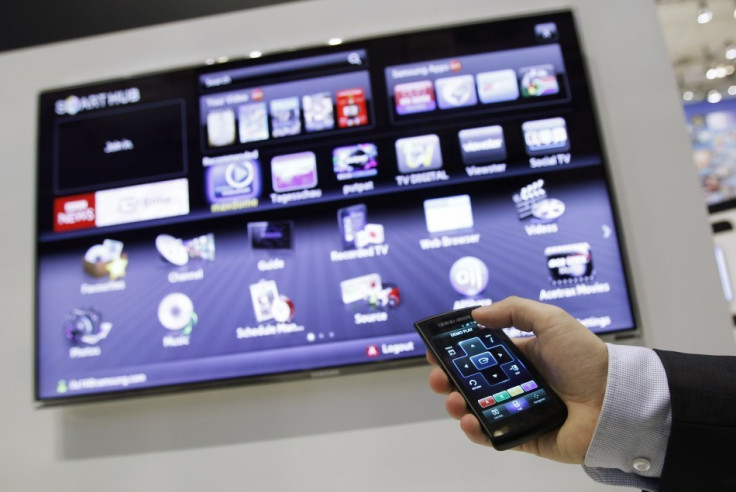Samsung smart TVs listen to your private conversations and share details with advertisers

TV manufacturers are constantly looking to create new and innovative ways for people to interact with their television sets, and one of these in recent years has been the introduction of voice control.
What could be easier than talking to your TV to change channel, search for a film or even launch Skype? The problem is that you may not be aware of who is listening to what you are saying from the comfort of your living room.
According to Samsung's own terms and conditions for its smart TVs, your television may be inadvertently selling private and personal information to third-parties (advertisers) without your knowledge.
This is the relevant extract from Samsung's terms and conditions:
Please be aware that if your spoken words include personal or other sensitive information, that information will be among the data captured and transmitted to a third party through your use of Voice Recognition.
This is how it works. Samsung's voice recognition feature can be used for TV commands or search sentences only, and when switched on, a little microphone icon is visible on the screen to let you know that Samsung is listening.
However, if you are unaware that someone is using the voice recognition feature but you are carrying on a conversation within earshot of your TV, Samsung will capture your words, send them to a server and share this data with a third party.
Confused
Samsung has responded to the issue saying that it "does not retain voice data or sell it to third parties" before contradicting itself by saying in the next sentence of its statement: "If a consumer consents and uses the voice recognition feature, voice data is provided to a third party during a requested voice command search."
As many have pointed out, this is a very Orwellian move on Samsung's behalf but it is far from the first time that televisions have turned on their owners.
Back in 2013, UK IT consultant Jason Huntley discovered that his LG smart TV was secretly logging his viewing habits, and even reporting what content was stored on any USB sticks he connected to his TV.
At the time LG defended its practices saying that "information such as channel, broadcast source, etc, that is collected by certain LG smart TVs is not personal but viewing information" and was collected in order to deliver "more relevant advertisements."
As Electronic Frontier Foundation activist Parker Higgins points out on Twitter, the Samsung terms and conditions could almost have been lifted word-for-word from George Orwell's 1984:
Left: Samsung SmartTV privacy policy, warning users not to discuss personal info in front of their TV
Right: 1984 pic.twitter.com/osywjYKV3W
— Parker Higgins (@xor) February 8, 2015© Copyright IBTimes 2025. All rights reserved.






















